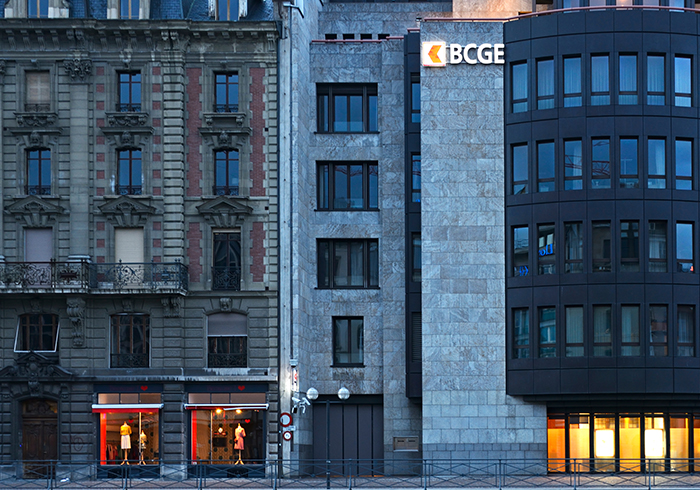A court in India has ruled that a Chennai shipowner must pay Banque Cantonale de Genève (BCGE) some US$6.7mn after the lender’s financing of a Gulf Petrochem oil deal went awry.
BCGE won a summary judgment against Galaxy Marine Services Limited, the owners of the MV Polaris Galaxy, in the High Court of Madras on July 9 after arguing the company had no prospect of defending the misdelivery claim at a full trial.
Justice Senthilkumar Ramamoorthy ruled the vessel had improperly discharged a cargo of marine fuel in Singapore without the consent of the bank.
The ruling highlight banks’ ongoing attempts to reclaim losses from the 2020 collapse of energy trader Gulf Petrochem and its parent company GP Global, as well as the risks of vessel owners consenting to discharge cargoes without the original bills of lading being available.
BCGE issued a letter of credit in May 2020 to finance Gulf Petrochem’s purchase of marine fuel from the Indian Oil Corporation, according to the judgment.
Gulf Petrochem said it would then sell the goods to Aramco Trading at Fujairah in the UAE, but ultimately the trader ordered MV Polaris Galaxy to reroute to Singapore and to discharge the cargo to Chevron instead.
The cargo was discharged from the vessel on the back of a letter of indemnity issued to Galaxy Marine by Profitable Wealth, a charterer based the British Virgin Islands.
The letter of indemnity promised to cover any losses Galaxy Marine may incur by discharging the cargo without the original bills of lading.
When Gulf Petrochem failed to repay the bank in August 2020, BCGE issued notices to the vessel’s master, P&I Club and Galaxy Marine, calling on them not to deliver the cargo without BCGE’s written consent. Yet by this stage, the cargo had already been released.
In court, BCGE argued the Liberian-flagged vessel should not have unloaded the fuel to Chevron without presentation of the original bills of lading, which ultimately denied the bank its security, the ruling shows.
The judge agreed, noting the bill of lading was “to the order” of BCGE and the bank was the consignee of the goods.
Galaxy Marine claimed the bank was potentially aware of Chevron’s involvement in the deal and never viewed the bill of lading as security, arguing for a full trial to ascertain BCGE’s knowledge of the underlying transaction.
But the judge dismissed its various defences and decided a trial was not warranted to decide liability, and also criticised the shipowner’s lack of evidence.
“Galaxy Marine has no real prospect or even possibility of successfully defending the claim,” Justice Ramamoorthy wrote.
Charter agreement
Banks are typically successful at recouping losses from shipowners when cargoes have been discharged without the bills of lading, including in previous cases involving Gulf Petrochem and other traders that collapsed in 2020.
Letters of indemnity are widely used in oil trading, where ownership of cargoes changes too quickly for paper bills of lading to be couriered between shipping companies, banks and other parties.
Galaxy Marine argued in court it was bound by a charter-party agreement with Profitable Wealth to comply when the charterer instructed it to discharge against the letter of indemnity – instead of the original bills of lading.
“Letters of indemnity are accepted in normal course and this procedure is always adopted by oil tankers when the original bill of lading is not available at the discharge port, in order to avoid delaying discharge, unnecessarily prevent detaining the vessel and to reduce congestion at ports,” Galaxy Marine submitted in a court document cited in the judgment.
“It is submitted that this is general trade practice and is widely accepted as standard custom industry-wide.”
But ultimately, the judge rejected this defence, ruling: “Undoubtedly, BCGE is not a party to the charter-party and contractual obligations thereunder cannot be set up as a defence to the charge of breach of the contract of carriage. Such defence is patently untenable.”
BCGE argued for a summary judgment award of US$6.7mn as this was the “fair value” of the cargo at the time of delivery, it said, pointing to an invoice between Gulf Petrochem and Aramco in 2020.
Galaxy Marine and a lawyer representing the company did not respond to requests for comment. A July 16 court order shows that the company is preparing to file for a stay or suspension of the summary judgment.
BCGE did not respond to a request for comment. Last year, a court in Singapore rejected the bank’s bid to reclaim a separate loss from financing a Gulf Petrochem cargo by suing a vessel owner.
Gulf Petrochem was also listed as a defendant but did not participate in the trial.
Additional reporting by Jacob Atkins.







